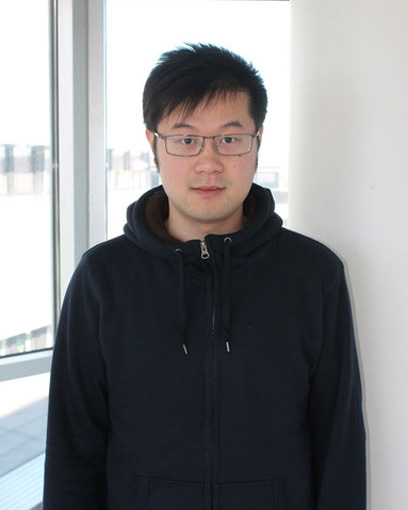Researcher in ’Wisdom of the Crowd’
Earlier this spring, Yuantao Fan defended his doctoral thesis in Signals and Systems Engineering about ’Wisdom of the Crowd’ in Signals and Systems Engineering. His focus has been on buses, but the method he has explored can work with many different types of equipment. Yuantao Fan started at Halmstad University as a Master’s student, and after finishing his PhD he has started post-doctoral position here.

What is your thesis about?
“This thesis demonstrates how to detect faults and monitor the condition of industrial equipment, for example a commercial fleet of city buses, by using artificial intelligence (AI) through the concept of "Wisdom of the Crowd”. The proposed method, Consensus Self-Organizing Models (COSMO), assumes that the majority of a crowd is ‘healthy’ and individuals that deviate from the majority are considered as potentially faulty. In my research, I have studied and applied the method to several condition monitoring applications, detecting faults and predicting failures for fleets of industrial assets”, says Yuantao Fan.

Yuantao Fan.
Are any results surprising to you?
“The COSMO method is generic and can work with many different types of systems or equipment for predictive maintenance purposes. This is demonstrated in my thesis through three case studies: condition monitoring for a fleet of city buses, non-destructive testing for metallic material and prognosis for a fleet of turbofan engines. The approach has several benefits, for example improving safety and reliability of equipment, that is making the transportation systems safer by indicating incoming faults and failures proactively and thus reducing and eliminating accidents and unplanned stops. It is interesting to see an unsupervised system, without learning from failure cases in advance, can proactively indicate upcoming faults and predicting failures. This is demonstrated in a case study on the air system of a commercial bus fleet, the proposed approach achieved similar performance compared to an expert knowledge-based system.”
How did you pick the subject or theme for your thesis?
“I am interested in Artificial Intelligence in general and was happy to explore any relevant topics. In particular, I like to work with real-world problems where the research contribution could potentially make an impact in reality as part of industrial applications and solutions. This research education matches my interest well since it is based on collaboration with our industrial partner at Volvo, where we develop, test and apply machine learning methods for predicting the maintenance need for heavy-duty vehicles. The method is receiving more and more attention from the industry in general and the research community. There are still many aspects to explore”.
How come you chose Halmstad University for your doctoral education?
“Before I applied and started my doctoral education, I was an exchange student studying the Master's Programme in Embedded and Intelligent System at Halmstad University and worked as a research engineer the School of Information Technology . I was informed by my colleague about this great opportunity. I did my undergraduate study at Shanghai University of Engineering Science (SUES) in China.”
What are you plans for the future?
“I will continue my study and research in designing fault detection and prognosis methods for maintaining industrial systems, as a post-doctoral researcher at Halmstad University. I will work at CAISR (the Center for Applied Intelligent Systems Research) with machine learning methods for predictive maintenance, with a special focus on developing lifetime models for vital components in hybrid and fully electric buses”, says Yuantao Fan.
Text: Kristina Rörström
Photo: Kristina Rörström, Istock
About the thesis
The case study on a fleet of commercial heavy-duty vehicles is a collaboration with Volvo Group Trucks Technology and Volvo Bus Corporation. The case study on non-destructive testing for metallic material is a collaboration with researchers from the Key Laboratory of Modern Acoustics at Nanjing University and Shanghai University of Engineering Science. Yuantao Fan and his fellow researchers have also been collaborating with researchers from Federal University of Santa Catarina in Brazil and from Luxembourg University on utilizing Echo State Networks for fault detection.
Yuantao Fan, former PhD-student at the School of Information Technology at Halmstad University defended his doctoral thesis on January 31, 2020. He did his doctoral education within the Embedded and Intelligent Systems Industrial Graduate School (EISIGS). His research has also been part of the Vinnova financed project ReDi2Service.

